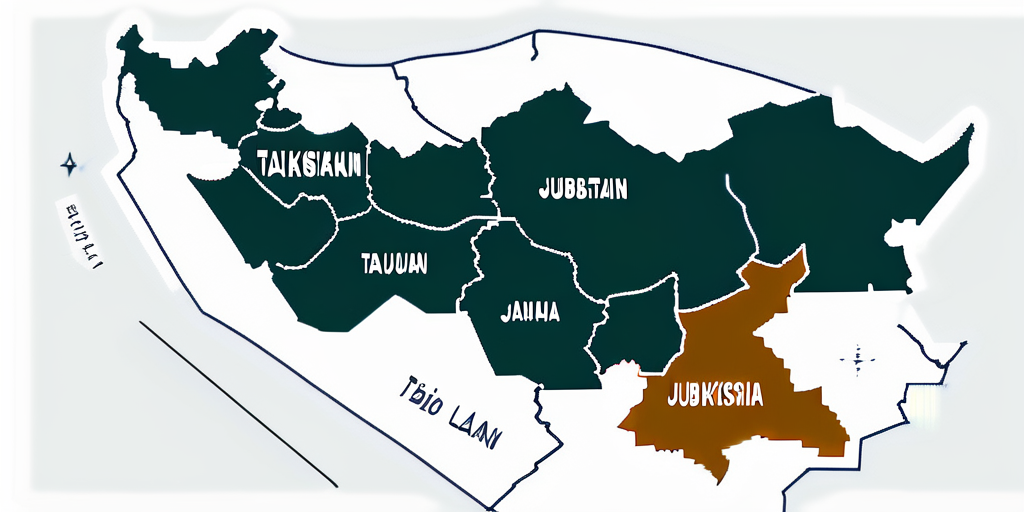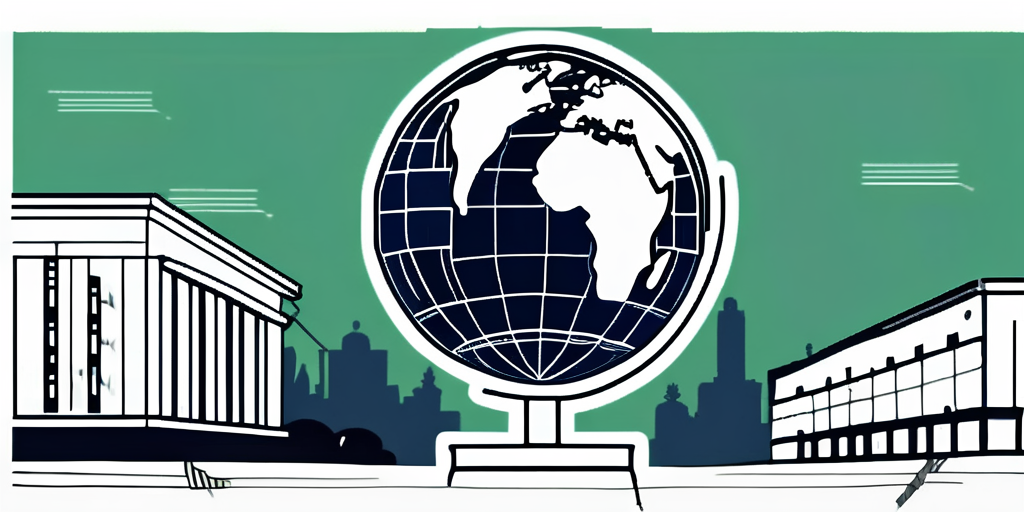Interpol, the International Criminal Police Organization, plays a crucial role in the fight against international crime. With its global reach and influence, Interpol collaborates with member countries to apprehend criminals and maintain global security. This article delves into Interpol’s role, particularly in relation to Tajikistan, shedding light on the crime landscape in this Central Asian nation, the most wanted criminals, Interpol’s efforts, and the future of crime and law enforcement.
Understanding Interpol’s Role in International Crime
Interpol serves as a vital global law enforcement network that facilitates cooperation and coordination among police agencies worldwide. Its primary goal is to assist member countries in combating transnational crimes that go beyond national borders. By providing a platform for information sharing and intelligence exchange, Interpol effectively aids in the investigation and apprehension of criminals.
Interpol’s extensive database, which contains information on stolen passports, criminal organizations, and suspected terrorists, serves as a valuable resource for law enforcement agencies around the world. This enables them to identify and track individuals involved in various offenses, ranging from drug trafficking to cybercrimes.
The Function and Importance of Interpol
Interpol functions by maintaining a network of National Central Bureaus (NCBs), one in each of its member countries. These NCBs act as a liaison between Interpol and the national law enforcement agencies within the respective countries. Through this collaboration, Interpol helps member countries apprehend fugitives, shares intelligence, and supports investigations.
The importance of Interpol cannot be understated. Its role extends beyond just facilitating cooperation between police forces. Interpol provides member countries with access to training programs, technical expertise, and operational support, thereby enhancing the capabilities of national law enforcement agencies. This contributes significantly to global security and the prevention of crime.
Interpol’s Global Reach and Influence
With 194 member countries, Interpol’s reach spans across the globe. This extensive membership enables international law enforcement agencies to work together seamlessly, overcoming jurisdictional barriers. Interpol’s influence rests in its ability to act as a neutral intermediary, fostering goodwill and trust among member countries.
Interpol’s General Secretariat, located in Lyon, France, serves as its headquarters. This centralization ensures efficient communication and coordination among member countries. Under the guidance of the General Secretariat, Interpol facilitates the exchange of information, organizes joint operations, and provides support during cross-border investigations.
The Crime Landscape in Tajikistan
Tajikistan, a country located in Central Asia, faces various criminal challenges within its borders. Understanding the crime landscape is essential to grasp the context in which Interpol operates and its efforts in combating crime within Tajikistan.
Common Types of Crime in Tajikistan
Tajikistan, like many other countries, experiences a range of criminal activities. Drug trafficking, smuggling, money laundering, and organized crime networks are among the significant challenges faced by law enforcement agencies in Tajikistan.
Drug trafficking, in particular, poses a severe threat to Tajikistan’s stability, as it is a transit point for narcotics coming from Afghanistan. Criminal syndicates exploit weak border controls and use Tajikistan as a strategic route to transport drugs to Europe and beyond.
The Impact of Crime on Tajik Society
The consequences of crime on Tajik society are profound. Criminal activities not only pose a threat to public safety but also hinder the country’s socioeconomic development. The illicit drug trade, for instance, fuels corruption, violence, and addiction, placing a strain on communities and undermining the rule of law.
Tajikistan recognizes the grave repercussions of crime and actively seeks the assistance of Interpol to combat these challenges. By collaborating with Interpol and other international partners, Tajikistan aims to strengthen its law enforcement capabilities and protect its citizens from the devastating impact of crime.
Tajikistan’s Most Wanted: A Closer Look
Unraveling the crimes committed by Tajikistan’s most wanted individuals provides crucial insights into the criminal landscape within the country. Understanding the profiles and offenses of these fugitives elucidates the challenges faced in their apprehension.

The Crimes of Tajikistan’s Most Wanted
Tajikistan’s most wanted individuals are involved in a range of heinous crimes, including drug trafficking, human trafficking, arms smuggling, and organized crime. These individuals lead criminal organizations that operate across borders, exploiting weaknesses in law enforcement and territorial jurisdiction.
The crimes committed by these fugitives not only have a detrimental impact on Tajikistan but also pose a threat to regional and international security. Disrupting these criminal networks requires the concerted efforts of law enforcement agencies, including the collaboration with Interpol.
The Challenges in Apprehending Tajikistan’s Most Wanted
Apprehending Tajikistan’s most wanted criminals presents significant challenges for law enforcement agencies. These criminals often have extensive networks, deep-rooted connections, and vast resources at their disposal. Evading capture becomes easier when these fugitives cross international borders, taking advantage of varying jurisdictions and legal systems.
Moreover, the relentless pursuit of these individuals requires international cooperation, effective intelligence sharing, and optimized coordination among law enforcement agencies. Interpol, with its expertise in cross-border investigations and its established network, plays a vital role in addressing these challenges and ensuring the successful apprehension of these fugitives.
Interpol’s Efforts in Tajikistan
Interpol has been instrumental in providing support and assistance to Tajikistan in its fight against crime. By employing a range of strategies and tactics, Interpol aims to bolster Tajik law enforcement agencies, equipping them with the tools needed to combat international criminal networks effectively.

Interpol’s Strategies and Tactics in Tajikistan
Interpol’s strategies in Tajikistan include intelligence exchange, capacity building, and conducting joint operations. By sharing information with Tajik law enforcement, Interpol assists in identifying and tracking criminals, disrupting their activities, and ultimately bringing them to justice.
Additionally, Interpol provides training and technical assistance to Tajikistan, enhancing the capabilities of its law enforcement officers. Through workshops and specialized programs, Tajik officers acquire new skills and knowledge to tackle emerging forms of crime effectively.
The Successes and Failures of Interpol in Tajikistan
Interpol’s efforts in Tajikistan have yielded both successes and challenges. Successful joint operations between Interpol and Tajik law enforcement agencies have resulted in the arrest of high-profile criminals and the seizure of illicit drugs and weapons.
However, combating transnational crime requires ongoing collaboration and a continuous effort. The fluid nature of criminal networks necessitates constant adaptations and strategies to counter evolving threats effectively. Interpol acknowledges the challenges it faces in Tajikistan but remains committed to strengthening its cooperation with Tajik law enforcement agencies.
The Future of Crime and Law Enforcement in Tajikistan
As crime continues to evolve, it is essential to assess the future trends and the evolving role of Interpol in Tajikistan. By predicting these trends, law enforcement agencies can proactively prepare and adapt their strategies.
Predicted Crime Trends in Tajikistan
Tajikistan is likely to face various challenges in the future, including a rise in cybercrime, human trafficking, and organized criminal activities. The interconnectedness of the digital world and the advancing technology heighten the risk of cyber-related offenses, necessitating enhanced cybersecurity measures and international cooperation.
Furthermore, as economic disparities persist, criminal organizations may exploit vulnerable individuals, leading to an increase in human trafficking. Tajikistan must remain vigilant in combating these emerging threats, seeking the support and collaboration of Interpol and other international partners.
The Evolving Role of Interpol in Tajikistan
Interpol recognizes the need to adapt to the ever-changing landscape of crime. In Tajikistan, Interpol aims to strengthen its partnership with local law enforcement agencies, providing ongoing support and training initiatives. By tailoring its strategies to address emerging threats, Interpol can stay ahead of criminals and effectively combat transnational crime within Tajikistan.
Moreover, as technology becomes more integral to criminal activities, Interpol is investing in advanced tools and capabilities to assist member countries in combating cybercrime. By sharing expertise and best practices, Interpol ensures that law enforcement agencies in Tajikistan are well-equipped to face future challenges.
Conclusion
In tackling international crime, Interpol plays a critical role in assisting member countries such as Tajikistan. Through its global reach and influence, Interpol facilitates cooperation and collaboration among law enforcement agencies, effectively combating transnational criminal activities. Tajikistan’s crime landscape, with its challenges and implications for society, underscores the need for Interpol’s assistance in apprehending fugitives and disrupting criminal networks.

By comprehending the crimes committed by Tajikistan’s most wanted individuals, appreciating the difficulties faced in their apprehension, and recognizing Interpol’s efforts, we gain valuable insights into the ongoing battle against crime within Tajikistan. The future, with its predicted crime trends and the evolving role of Interpol, requires proactive measures and international cooperation to safeguard Tajikistan’s security and well-being.
